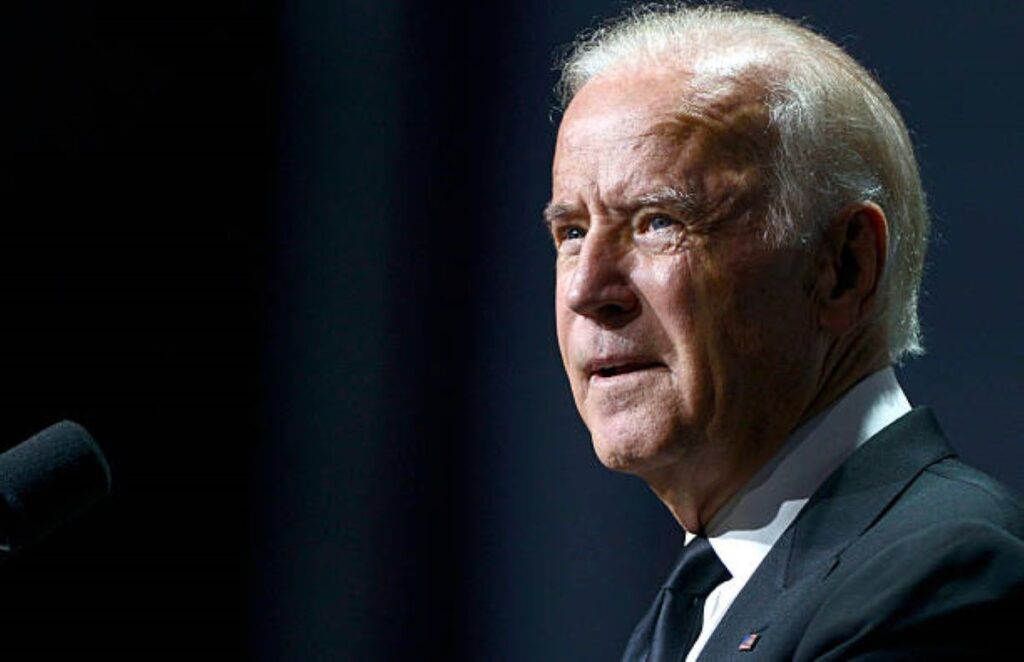
President Joe Biden took action on Saturday, signing a $460 billion spending bill into law, effectively preventing a partial government shutdown that loomed over the weekend.
The bipartisan agreement covers funding for six significant areas of government, including military and veterans affairs departments, agriculture, commerce, justice, transportation, housing, urban development, and energy. The Senate had voted 75 to 22 to approve the package after it was passed by the House earlier in the week.
This agreement signifies a step forward in efforts to establish a permanent budget plan for the remainder of the fiscal year, which commenced on October 1, 2023. The other six appropriations bills that fund the rest of the government are set to expire on March 22.
In a statement from the White House, President Biden expressed his gratitude to congressional leaders for their leadership in resolving the crisis. However, the statement did not address any outstanding issues.
ALSO READ: Biden Blames Putin for Alexei Navalny’s Death, Claims He “Is Responsible”
Key Provisions and Negotiations
The spending measure largely maintains funding for affected agencies at levels agreed upon in last year’s debt limit and spending deal negotiated by President Biden and his predecessor, Kevin McCarthy.
While Republicans were able to include some modest policy provisions, their more contentious demands were not met. Among the policies rejected from the spending package was a Republican proposal to defund a new FDA rule regarding the distribution of the abortion drug mifepristone.
Upcoming Challenges for Congress
Congress now faces a tight deadline of 13 days to address the six remaining spending bills unless an extension is approved. Senate Majority Leader Johnson, despite having a narrow majority, is under pressure from his party’s hard-liners to push for deeper spending cuts in domestic programs.
This marks the fourth instance this fiscal year that Congress has resorted to passing a short-term spending bill to avoid a government shutdown.
POLL — Should the Government Increase Taxes on the Wealthy To Reduce Economic Inequality?
“To folks who worry that divided government means nothing ever gets done, this bipartisan package says otherwise,” Senate Majority Leader Chuck Schumer, D-N.Y., said after lawmakers passed the measure Friday night just hours before a deadline.
He said the bill’s passage would allow for the hiring of more air traffic controllers and rail safety inspectors, give federal firefighters a raise, and boost support for homeless veterans, among other things.
“I would urge my colleagues to stop playing with fire here,” said Sen. Susan Collins, the top-ranking Republican member of the Senate Appropriations Committee. “It would be irresponsible for us not to clear these bills and do the fundamental job that we have of funding government. What is more important?”
The votes came more than five months into the current budget year after congressional leaders relied on a series of stopgap bills to keep federal agencies funded for a few more weeks or months at a time while they struggled to reach agreement on full-year spending.
ALSO READ: “Wake Up!” Biden Takes a Swipe at Trump While Delivering Fiery State of the Union Address
Wins and Priorities for Both Parties
Democrats have prioritized continued full funding for a special food assistance program for women, infants, and children, along with securing victories on rent assistance and pay for infrastructure employees.
Meanwhile, Republicans have touted victories on issues such as veterans’ gun ownership rights and funding cuts to government agencies like the EPA, FBI, and ATF.
You Might Also Like:
Texas Student Suspended for Refusing to Cut His Locs to Attend State of the Union as CBC Guest
“Wake Up!” Biden Takes a Swipe at Trump While Delivering Fiery State of the Union Address
Rep. Cathy McMorris Rodgers Says She Won’t Seek Reelection
